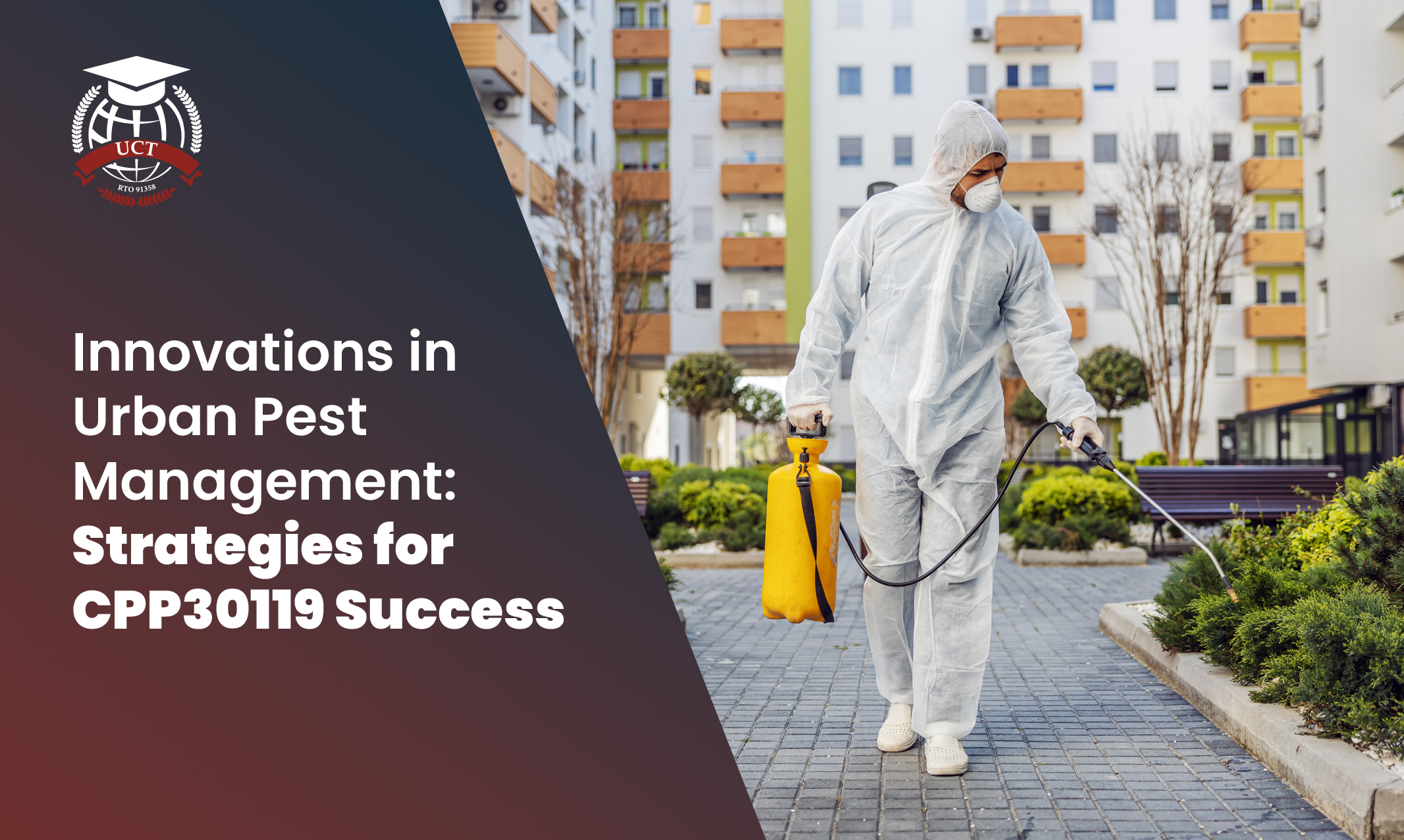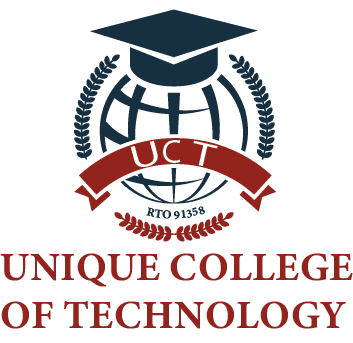Innovations in Urban Pest Management: Strategies for CPP30119 Success

CPP30119 Certificate III in Urban Pest Management
Introduction:
Urban pest management is a critical aspect of maintaining public health, safety, and environmental sustainability in urban environments. The CPP30119 Certificate III in Urban Pest Management equips professionals with the knowledge and skills necessary to address pest infestations effectively while adhering to regulatory standards and promoting environmental stewardship. In this article, we delve into the innovative strategies and best practices that drive success in urban pest management, covering key topics such as pest inspection, chemical application, integrated pest management, and client communication.
Pest Inspection Techniques:
Pest inspection is the first step in effective pest management, enabling professionals to identify pest species, assess infestation levels, and develop targeted treatment plans. CPP30119 emphasizes the importance of thorough pest inspections, equipping professionals with techniques to detect signs of infestation in various urban environments. From conducting visual inspections to utilizing monitoring devices and digital tools, professionals employ a range of methods to identify pest hotspots and assess potential risks to public health and safety.
Chemical Application Safety:
Chemical application is a common method for controlling pest populations in urban environments, but it must be executed with precision and care to minimize environmental impact and protect human health. CPP30119 emphasizes the safe and responsible use of pesticides, ensuring compliance with legislative requirements and industry best practices. Professionals undergo rigorous training in chemical application techniques, including proper handling, storage, and disposal of pesticides, as well as the use of personal protective equipment to mitigate exposure risks.
Integrated Pest Management Strategies:
Integrated Pest Management (IPM) is a holistic approach to pest control that emphasizes prevention, monitoring, and sustainable solutions. CPP30119 promotes the adoption of IPM strategies, equipping professionals with the knowledge and skills to implement comprehensive pest management plans tailored to specific urban environments. By combining biological, cultural, and mechanical control methods with targeted chemical treatments, professionals can minimize reliance on pesticides and promote long-term pest control efficacy.
Compliance with Health and Safety Standards:
Compliance with health and safety standards is paramount in urban pest management, ensuring the protection of workers, clients, and the environment. CPP30119 provides professionals with a thorough understanding of legislative requirements, industry codes of practice, and workplace health and safety regulations. From risk assessments to emergency response protocols, professionals are trained to identify hazards, implement control measures, and maintain safe working conditions throughout the pest management process.
Understanding Pest Biology and Behavior:
A deep understanding of pest biology and behavior is essential for developing effective pest management strategies. CPP30119 equips professionals with knowledge of common urban pests, their life cycles, habitats, and behavior patterns. By studying the biology of pests such as rodents, insects, and birds, professionals can anticipate infestation trends, identify vulnerabilities in urban ecosystems, and implement proactive control measures to prevent pest outbreaks and minimize damage.
Environmental Sustainability in Pest Management:
Environmental sustainability is a guiding principle in modern pest management practices, emphasizing the importance of minimizing chemical usage, conserving natural resources, and protecting biodiversity. CPP30119 promotes sustainable pest management approaches that prioritize non-chemical control methods, habitat modification, and ecosystem restoration. By incorporating green technologies, such as biological controls, pheromone traps, and habitat manipulation, professionals can achieve effective pest control outcomes while minimizing environmental impact.
Effective Client Communication Strategies:
Effective communication is key to successful pest management, fostering trust, collaboration, and transparency between professionals and clients. CPP30119 emphasizes the importance of clear and concise communication throughout the pest management process, from initial consultations to post-treatment follow-ups. Professionals are trained to educate clients about pest biology, treatment options, and preventive measures, empowering them to make informed decisions and take an active role in pest management efforts.
Navigating Pest Control Legislation:
Pest control legislation varies by region and jurisdiction, requiring professionals to stay abreast of regulatory requirements and compliance obligations. CPP30119 provides professionals with a comprehensive understanding of relevant legislation, including licensing requirements, permit applications, and reporting obligations. By ensuring compliance with legislative standards, professionals uphold the integrity of the pest management industry and protect public health and safety.
Enhancing Pest Identification Skills:
Accurate pest identification is essential for implementing targeted control measures and achieving effective pest management outcomes. CPP30119 trains professionals in the identification of common urban pests, including insects, rodents, birds, and wildlife. By mastering diagnostic techniques, such as species recognition, pest morphology, and behavioral cues, professionals can quickly assess infestation levels, identify contributing factors, and develop tailored treatment plans that address specific pest challenges.
Assessing Environmental Impact:
Assessing the environmental impact of pest management activities is crucial for minimizing ecological harm and promoting sustainability. CPP30119 emphasizes the importance of conducting environmental impact assessments to evaluate the potential consequences of pest control interventions on non-target species, habitats, and ecosystems. By considering factors such as pesticide toxicity, application methods, and ecological sensitivity, professionals can implement control measures that achieve pest management goals while safeguarding environmental health.
Promoting Workplace Health and Safety:
Promoting workplace health and safety is a priority in urban pest management, mitigating risks of injury, illness, and accidents for professionals and clients alike. CPP30119 instills a culture of safety consciousness among professionals, emphasizing hazard awareness, risk mitigation, and emergency preparedness. From manual handling techniques to chemical safety protocols, professionals receive comprehensive training in workplace health and safety practices, ensuring the well-being of all stakeholders involved in pest management operations.
Conclusion:
In conclusion, innovations in urban pest management are transforming the industry, enabling professionals to achieve effective pest control outcomes while promoting environmental sustainability, health, and safety. Through rigorous training and certification programs such as CPP30119, professionals gain the knowledge and skills necessary to navigate complex urban environments, address diverse pest challenges, and deliver high-quality pest management services that meet the needs of clients and communities. By embracing integrated pest management strategies, compliance with legislative standards, and effective communication practices, professionals pave the way for a future where urban environments are healthier, safer, and more resilient against pest threats.

